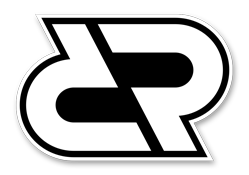He won two Oscars for the Vietnam classic, but his wildly overbudget film about the settlement of the American West brought down a studio.
Michael Cimino, who won Oscars for director and best picture for the powerful 1978 Vietnam War drama The Deer Hunter, has died. He was 77.
Thierry Fremaux, director of the Cannes Film Festival, announced the news on Twitter. No other details of his death were immediately available.
Despite his achievement with The Deer Hunter, his next project, Heaven’s Gate (1980), capsized United Artists with his profligate budget excesses. Subsequently, the words “Heaven’s Gate” entered filmmaking lexicon as an out-of-control, overbudget production.
A strong believer in location shooting, Cimino insisted that real places had a tremendous effect on actors’ performances and the film’s texture. It worked fine for his directorial debut in Thunderbolt and Lightfoot (1974), shot in Big Sky territory under the cost-conscious eye of producer/star Clint Eastwood. It also featured an inspired performance from co-star Jeff Bridges.
Yet Heaven’s Gate, a frontier epic about the settlement of the West that was shot mainly at a studio-constructed town in Glacier National Park in Montana, outraged executives at UA. Cimino’s insistence on authenticity, in the end, deflated the production and sank the troubled studio. In addition, its running time of 219 minutes exasperated theater owners.
Trying to cut its losses, UA pulled it from exhibition. The studio reissued a trimmed version in 1981, but that fared no better. The entire debacle was chronicled in Final Cut: Art, Money, and Ego in the Making of Heaven’s Gate, the Film That Sank United Artists, a 1999 book written by former UA executive Steven Bach. (The film did play at Cannes.)
In a March 2015 interview with THR’s Seth Abramovitch — perhaps the last one he ever did — Cimino described the audience reaction to The Deer Hunter when the film, which starred Robert De Niro, Christopher Walken and John Cazale and collected five Oscars in all, opened in theaters.
“We were sitting in the back row of the — I’ve forgotten the name of the theater in Westwood — and people were just driving up in cars, just a line of cars,” he recalled. “And someone would run out and buy 12 tickets. Someone would run out and buy 20 tickets. And this kept going and going and going and going.
“And then we had a screening and
Even the powerful eloquence of The Deer Hunter, which Cimino also wrote for another Oscar nomination, was mired in controversy. Critics and historians complained that it misrepresented history. In particular, they pointed to a scene in which a sadistic North Vietnamese officer forces the captive U.S. soldiers to play Russian roulette. It was a contention that Cimino disputed strongly, insisting his story transcended literal history.
After Heaven’s Gate, Cimino’s directing was sporadic, with his work including Year of the Dragon (1985), The Sicilian (1987), Desperate Hours (1990), The Sunchaser (1996) and a segment in To Each His Own Cinema (2007).
Indicative of Cimino’s precarious standing in Hollywood after Heaven’s Gate, MGM/UA bowed to protesters who contended that Year of the Dragon was racist in its depiction of Chinese Americans. That prompted the studio to issue a disclaimer at the film’s beginning. The controversy showed that a Cimino project was vulnerable to stringent scrutiny and hyper-reaction.
Years later, his director’s cut for Heaven’s Gate, which starred Kris Kristofferson and Walken, finally made it to the screen. He told Abramovitch he was happy with his work.
“Yeah. And it just had, just overwhelming responses. It was at Venice and it was just a half-hour standing ovation, and New York Film Festival, same thing,” he said. “And just packed, I mean the minute they announced it, it was sold out in 10 minutes. And then of course at the Lumiere Festival in France, the biggest film theater I know of in the world, 6,000 people, was filled from top to bottom. It was overwhelming. I got on the stage, I couldn’t speak. It was just, I mean, 6,000 people giving you a standing ovation is quite an experience.”
Cimino was born Feb. 3, 1939, and grew up in New York City. While attending Yale University as a fine arts major, he enlisted in the U.S. Army Reserve. Cimino got his masters from the University of New Haven in 1963, then moved to New York to study acting and ballet. He also worked for a small company that produced documentary and industrial films.
By the late 1960s, Cimino had established a reputation as a skilled maker of TV commercials. But in 1971, he gave that up to go to Los Angeles to pursue moviemaking. He began script writing and received credit on Silent Running (1972), which he co-wrote with Deric Washburn and Steven Bochco.
He next worked with John Milius on the screenplay for the Dirty Harry follow-up Magnum Force (1973), starring Eastwood.
Cimino wrote and directed Thunderbolt and Lightfoot, an offbeat story about a Big Sky mining heist that won accolades. Based on that, Cimino received several studio offers, but he only wanted to do projects he was passionate about. Such was the case with a story he championed — about three steelworker friends who go off to fight in the Vietnam War.
He convinced EMI to finance it, and shooting began on The Deer Hunter in 1977.
Source: Hollywood Reporter – Top Story





